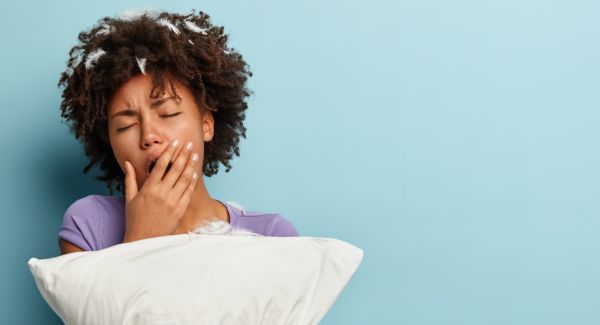
We are living through what many experts call a “sleep epidemic.” Over the past 50 years, average sleep duration has declined by nearly two hours per night. Millions of people now struggle with falling asleep, staying asleep, or waking up feeling unrested.
This matters because sleep deprivation is linked to serious health issues, including diabetes, obesity, weakened immunity, and mental illness. Lack of sleep also disrupts mood, concentration, and appetite — leaving people cranky, prone to poor decisions, and more likely to overeat.
While insomnia is often blamed, it’s far from the only culprit. In fact, there are several hidden sleep disruptors that can quietly sabotage your rest. Here are seven you should know about.
1. Nocturia
Nocturia is the need to wake up multiple times during the night to urinate. It can affect people of any age, though it’s more common in those over 60. Frequent bathroom trips interrupt sleep cycles and make it difficult to get enough rest. This is one of the most overlooked hidden sleep disruptors.
2. Sleep Apnoea
Sleep apnoea is a condition where breathing repeatedly stops and starts during sleep. It often causes loud snoring, gasping for air, and frequent awakenings. These disruptions prevent deep, restorative sleep and leave sufferers exhausted during the day.
3. Prescription Stimulants
Certain medications, especially stimulants prescribed for attention-deficit hyperactivity disorder (ADHD), can interfere with sleep. They may make it harder to fall asleep or stay asleep, even when taken earlier in the day.
4. Steroids
Corticosteroids are commonly prescribed to reduce inflammation in conditions like asthma, arthritis, eczema, and lupus. While effective, they can also cause restlessness and difficulty falling asleep, making them another example of hidden sleep disruptors that people rarely consider.
5. PTSD
Post-traumatic stress disorder (PTSD) often disrupts sleep through nightmares, flashbacks, or heightened anxiety. People living with PTSD may find it difficult to relax enough to fall asleep, or they may wake frequently during the night.
6. Restless Legs Syndrome (RLS)
RLS causes an uncontrollable urge to move the legs, often accompanied by uncomfortable sensations. These symptoms typically worsen at night, making it hard to fall asleep or stay asleep. RLS has been linked to certain medications, as well as alcohol, caffeine, and nicotine use.
7. Lifestyle Factors
Everyday habits can also sabotage sleep. Caffeine, alcohol, nicotine, and even late-night exercise can disrupt sleep cycles. Poor sleep habits such as irregular bedtimes, excessive screen use before bed, or sleeping in noisy environments are common hidden sleep disruptors that many people overlook.
Insomnia may be the most recognised sleep disorder, but it’s far from the only reason people struggle to rest. Conditions like sleep apnoea, nocturia, PTSD, and restless legs syndrome, along with medications and lifestyle choices, all play a role in inadequate sleep.
By identifying these hidden sleep disruptors, you can take steps to improve your sleep quality and protect your health. If you’ve already tried adjusting your habits and still wake up exhausted, it may be time to consult a doctor to uncover the root cause.



